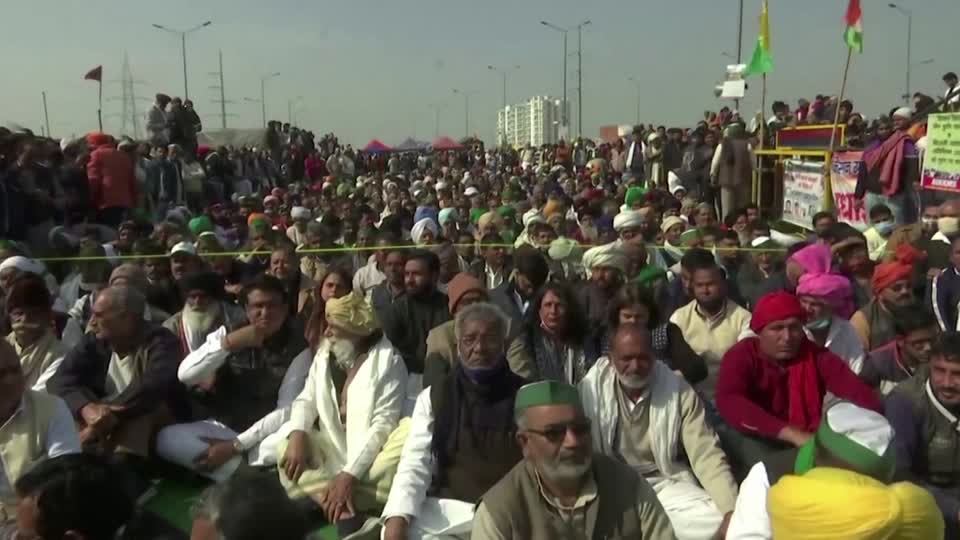Hundreds of Indian farmers gathered in New Delhi on Saturday (January 30) to embark on a one-day hunger strike.
Authorities blocked mobile internet services in several areas of the capital, after a week of violent clashes.
The farmers are angry about new agricultural laws which, according to them, benefit large private food buyers at the expense of producers.
Earlier this week, a planned trekking parade turned violent during Republic Day commemoration.
When some protesters broke away, broke down barricades and clashed with the police, who used tear gas to try to contain it.
One person was killed and hundreds were injured.
Farm leaders said today’s hunger strike was designed to coincide with the anniversary of the death of Indian independence leader Mahatma Gandhi, and it would show Indians that the protests were not violent.
“We will not hide behind the force of violence. Until the three laws are repealed, we will not move from here. ‘
Tens of thousands of farmers have been camping on protest sites on the outskirts of the capital for more than two months.
The Indian Interior Ministry said on Saturday that internet services in three places had been suspended until Sunday night to “maintain public safety”.
Video transcription
– Hundreds of Indian farmers gathered in New Delhi on Saturday to begin a one-day hunger strike. Authorities blocked mobile internet services in several areas of the capital after a week of violent clashes. The farmers are angry about new agricultural laws which, according to them, benefit large private food buyers at the expense of producers.
Earlier this week, a planned trekking parade turned violent during the Republic Day commemoration as some protesters broke away, broke barricades and clashed with police using tear gas to try to contain them. One person was killed and hundreds were injured. Farm leaders said today’s hunger strike was designed to coincide with the anniversary of the death of Indian independence leader Mahatma Gandhi, and it would show Indians that the protests were not violent.
[NON-ENGLISH SPEECH]
INTERPRETER: We will not hide behind the force of violence. Until the three laws are repealed, we will not move from here.
– Tens of thousands of farmers have been camping on protest sites on the outskirts of the capital for more than two months. The Indian Interior Ministry said on Saturday that internet services had been suspended in three places until Sunday night to maintain public safety.
